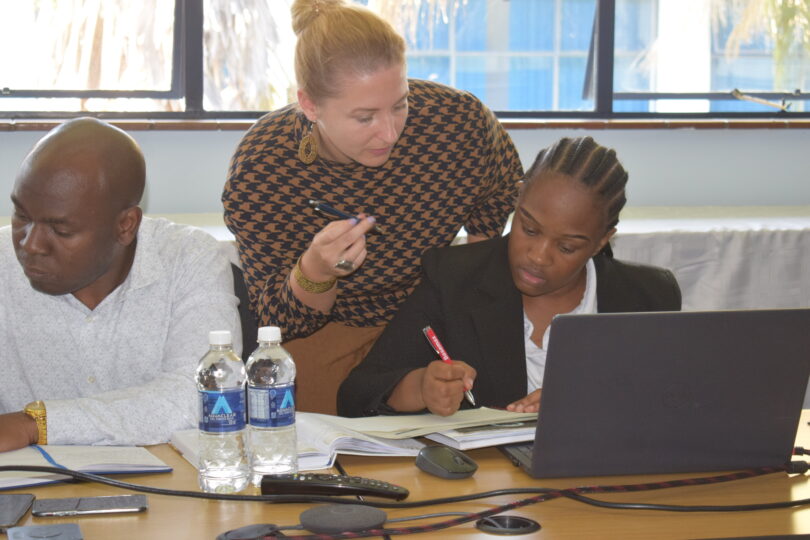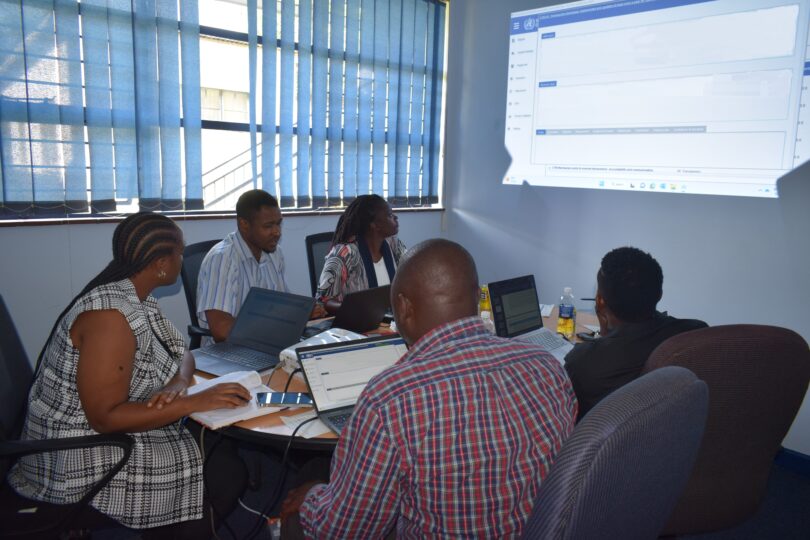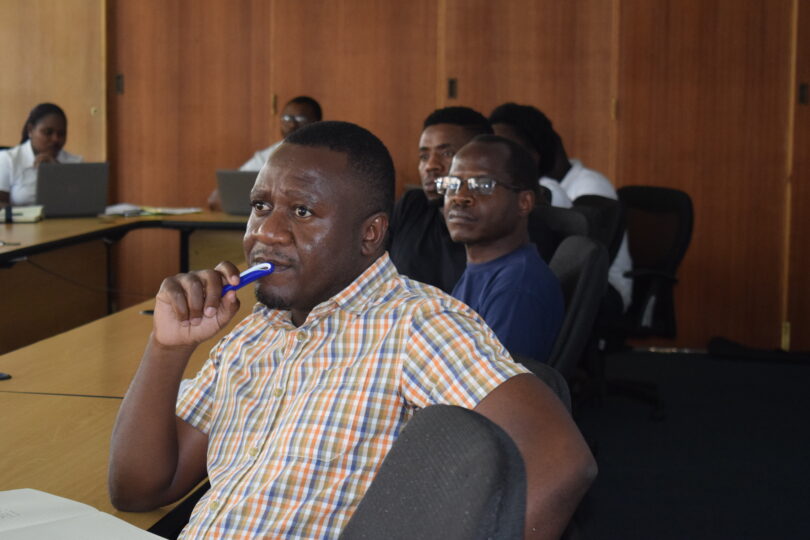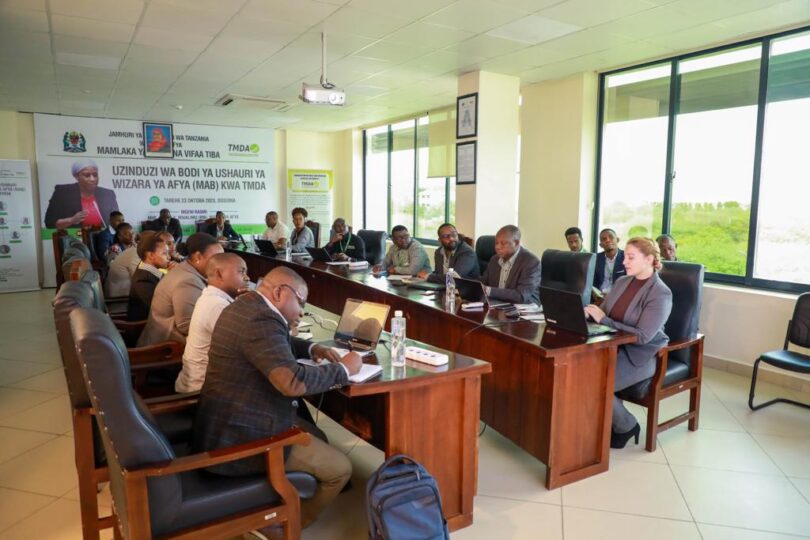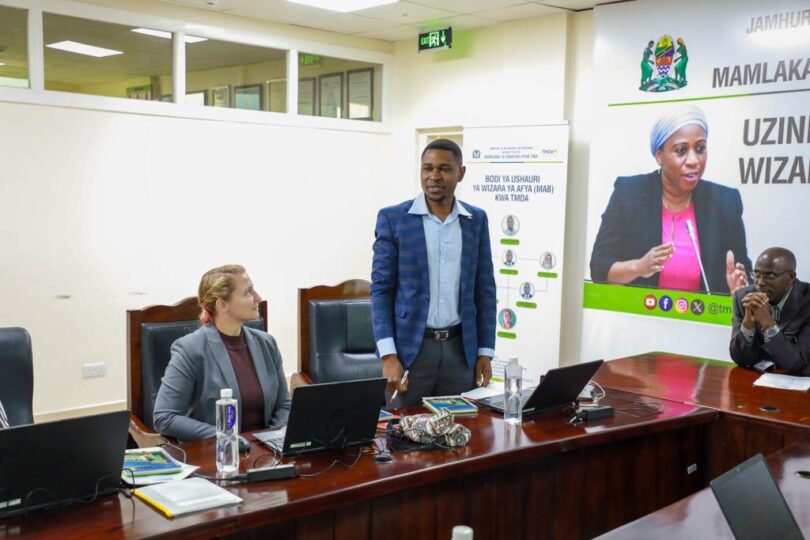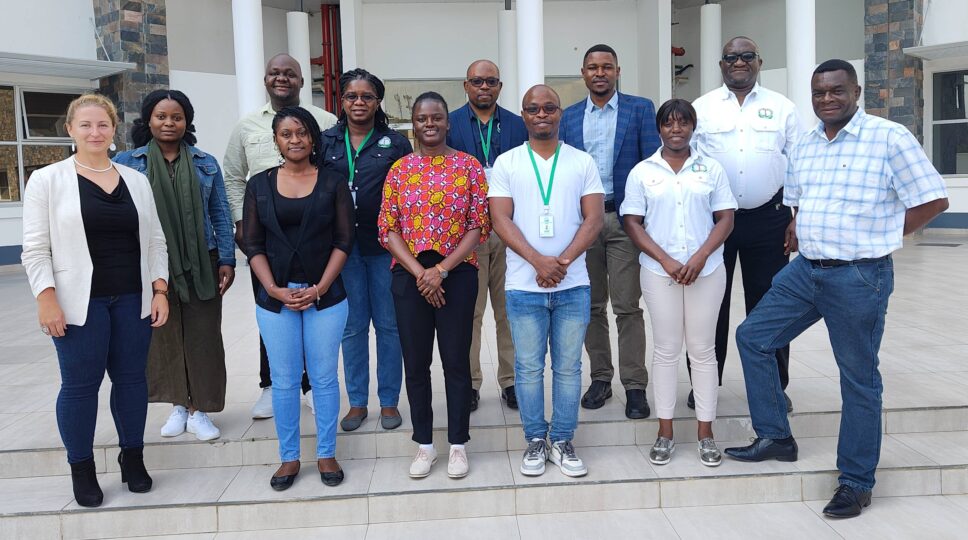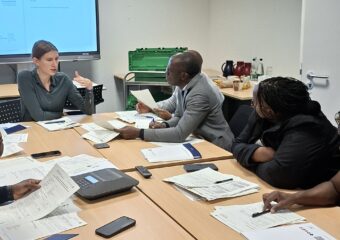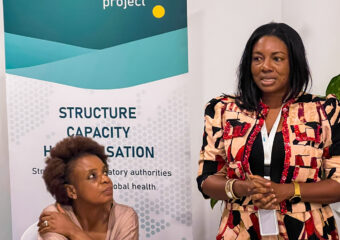BloodTrain Supports Three Partners in Self-Benchmarking Their Blood and Blood Product Regulation
The three regulatory authorities of Tanzania, Zambia and Zimbabwe have conducted a comprehensive self-assessment using the expanded WHO Global Benchmarking Tool for Blood. This provides them with an overview of the strengths and weaknesses of their national blood regulatory system to ultimately address identified gaps in a systematic way. The BloodTrain Next Generation team at the Paul-Ehrlich-Institut officially supported this activity in collaboration with the WHO Regulatory Systems Strengthening (WHO RSS) Unit.
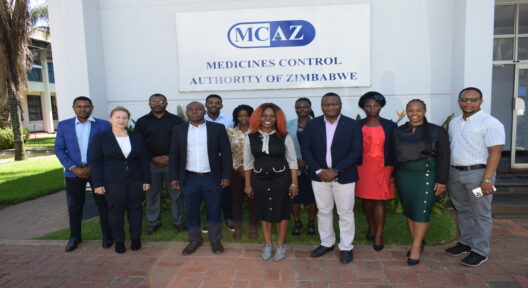
Since 2019, the World Health Organization (WHO) has included the regulation of blood and blood products in its global assessment system for medicine authorities, the Global Benchmarking Tool (GBT). Until now, no official WHO benchmarking using the extended GBT + Blood tool has been performed. However, the self-assessment using this tool is been recognised by the WHO as part of the preparation for a formal WHO benchmarking of blood regulation. Therefore, the GHPP BloodTrain team assisted three partner regulatory authorities in performing such preparatory self-assessment. It took place between October and December 2023. The assisted self-benchmarking uncovered strengths and areas for improvement in their blood regulatory systems and helped to familiarise with the requirements of the extended GBT + Blood tool. Eventually, the results of the self-benchmarking will assist in better planning the work of the BloodTrain in advancing efficient regulation of blood products of the partner authorities in the future. ‘We would like to express our sincere thanks to all three partners for the trust they have placed in us. I am sure that it will be very enlightening for the authorities to shed light on blood regulation so that they can continue to strengthen it in a targeted manner,’ says Dr Jens Reinhardt, project lead of BloodTrain Next Generation. He adds, ‘For us as a project, it’s also exciting to see how far our partners have come since our initial benchmarking in 2018.’
Self-assessment as part of the WHO benchmarking process
Prior the assisted self-assessment, the BloodTrain-team obtained the consent of the partner national regulatory authorities and signed all documents related to confidentiality and conflict of interest that are required for individuals partaking in the WHO benchmarking process. During the facilitated five-day on-site self-assessment, the regulators went through all 11 functions, 73 indicators and 315 sub-indicators relevant to blood regulation. The following questions guided the exercise: Are existing guidelines complete or do they need to be supplemented? Are all required regulatory documents available? What references or documents are expected by WHO as evidence for the individual indicators? What is the stage of implementation of individual indicators? Chancelar Kafere from the BloodTrain team, who participated in all the self-benchmarking sessions onsite, says: “Prior to this exercise, self-benchmarking for blood products had only been carried out once, as an online event, two years ago. It was therefore an intensive exercise for everyone, especially with regard to the very specific indicators for blood that do not apply to other medicines.” In addition, it is of great advantage to be able to directly identify areas which need strengthening. ‘The partner authorities now have updated institutional development plans, which we at BloodTrain use to create a roadmap for our further technical support’, says Kafere.
Blood regulation is crucial
The recommendation for blood regulation in the 2010 World Health Assembly resolution WHA63.12 on the availability, quality and safety of blood products emphasised that such regulatory systems are a fundamental need for all countries. In an early effort to support implementation, the former WHO Blood Regulators Network (WHO BRN), of which the Paul-Ehrlich-Institut was a key member, developed a tool to assess national blood regulatory systems. It was published in 2012 to support capacity building of regulatory authorities. The inclusion of blood and blood components in the WHO Model List of Essential Medicines in 2013 further increased the need for regulatory standardisation and oversight to ensure their quality, safety and efficacy. With support from the Paul-Ehrlich-Institut and other partners, the WHO integrated the BRN tool into the GBT in 2019 giving rise to the current GBT + Blood. With this, the WHO emphasises the relevance of blood regulation as “critical to any national regulatory authority”[1]. This includes, for example, the licensing of blood establishments, which authorises certain manufacturing processes and quality standards for blood and blood components.
Dates of BloodTrain-assisted self-benchmarkings:
Zambia: 16 October – 20 October 2023, together with Zambia Medicines Regulatory Authority (ZAMRA)
Tanzania: 6 November – 10 November 2023, together with Tanzania Medicines and Medical Devices Authority (TMDA)
Zimbabwe: 4 December – 8 December 2023, together with Medicines Control Authority of Zimbabwe (MCAZ)

